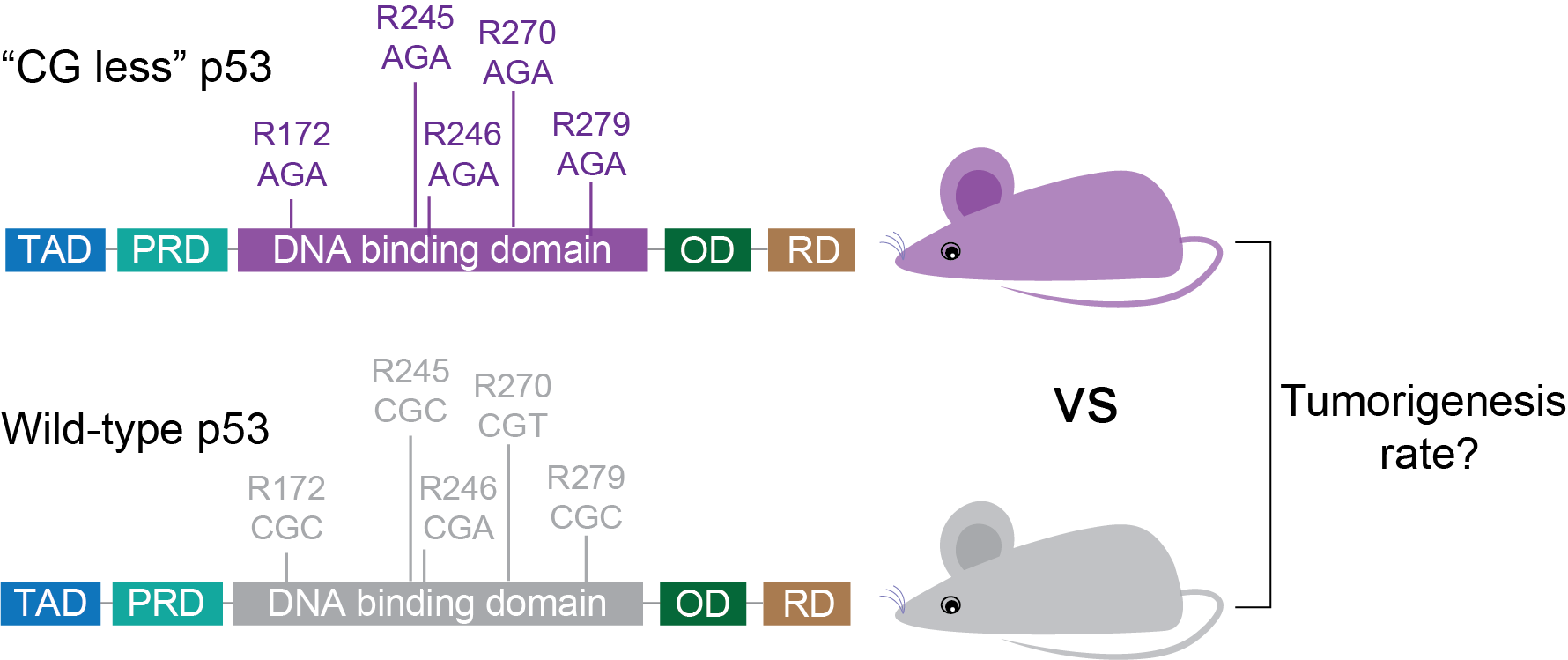synthetic mouse p53
a hotspot mutation-resistant p53?
In this collaborative project we aim to engineer mice with a “cancer-mutation-resistant” Trp53 (p53) gene in. Missense mutations occur frequently in p53 in cancer cells and are concentrated in its DNA binding domain. This is due to frequent deamination of methylcytosine at CG sites leading to C to T conversion, as well as the binding of DNA adducts to certain methylated CG dinucleotides. Given that the methylated CG dinucleotides are highly mutable, we hypothesized that synonymously recoding the DNA sequence of p53 to avoid CG dinucleotides will minimize its mutation rate. To mitigate the risk of affecting the methylation landscape, only the CG dinucleotides at p53 mutation hotspots were recoded. We used mSwAP-In to replace the endogenous Trp53 allele in mouse embryonic step cells (mESCs) with a synthetic one carrying the recoded hotspot codons. We plan to generate and study mice carrying this synthetic p53 gene.
Read more in Zhang et al., Nature 2023.
IN COllaboration with:
Francisco J. Sánchez-Rivera, PhD, Massachusetts Institute of Technology.
